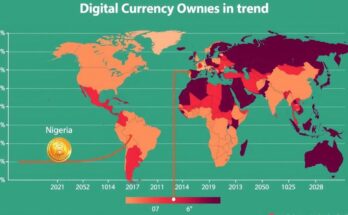Brazil and Argentina have signed a deal with Bolivia’s YPFB to transport natural gas from Argentina’s Vaca Muerta shale formation. The contract enables the use of Bolivian infrastructure to facilitate gas exports amid declining Bolivian supplies. TotalEnergies has gained permits to export from Argentine basins, aiming to position Argentina as a significant gas exporter while restructuring regional energy relations.
On November 22, 2023, Grupo Matrix Energia from Brazil and TotalEnergies from Argentina announced a significant agreement with Bolivia’s state-owned YPFB to facilitate the transportation of natural gas sourced from Argentina’s Vaca Muerta shale formation. The contract allows YPFB to utilize its infrastructure to deliver Argentine gas to Brazil, a move aimed at enhancing energy integration across the region. As Bolivia’s gas exports have dwindled, this arrangement marks a critical shift, allowing Argentina to leverage its substantial shale reserves while transitioning to a robust gas exporting nation. The agreement also includes permits for TotalEnergies to export natural gas from Argentina’s Austral and Neuquen Basins to Brazil.
The recent deal among Brazil, Argentina, and Bolivia’s YPFB emerges against a backdrop of decreased gas exports from Bolivia, which has historically been a significant supplier in the region. In recent years, both Argentina and Brazil have been compelled to look for alternative gas sources due to diminishing supplies from Bolivia. Argentina possesses the world’s second-largest shale gas reserves and aims to enhance its role as a gas exporter, although it continues to develop the necessary pipeline infrastructure and commercial frameworks to support such exports.
The agreement between Brazil, Argentina, and Bolivia’s YPFB signifies an important progression in the region’s energy dynamics. The deal not only enables the transfer of natural gas from Argentina to Brazil, utilizing Bolivian transport infrastructure, but also reflects Argentina’s ambition to emerge as a key gas exporter amid changing market conditions in South America. This partnership may pave the way for enhanced regional energy cooperation and supply security.
Original Source: www.worldpipelines.com




